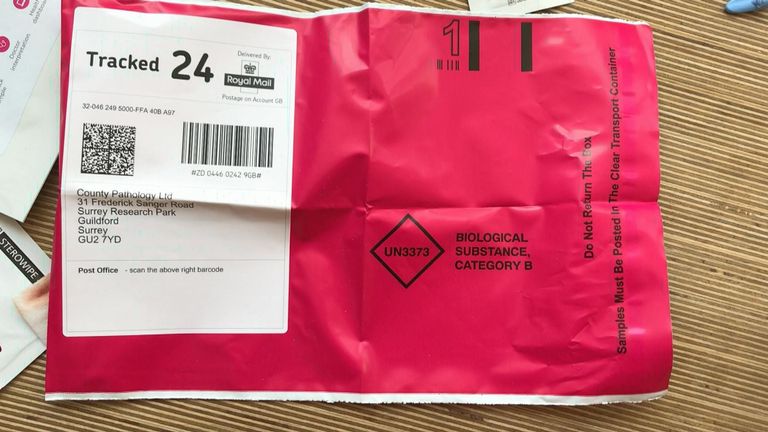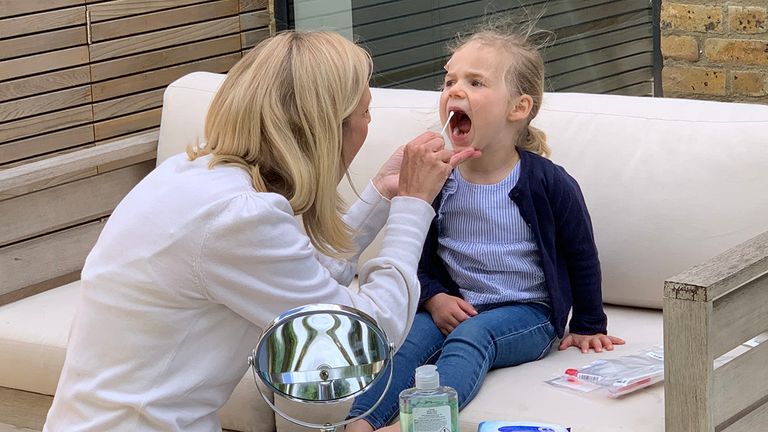Antibody tests can measure whether someone has already had coronavirus and has developed antibodies in their blood.

Thursday 14 May 2020 16:56, UK
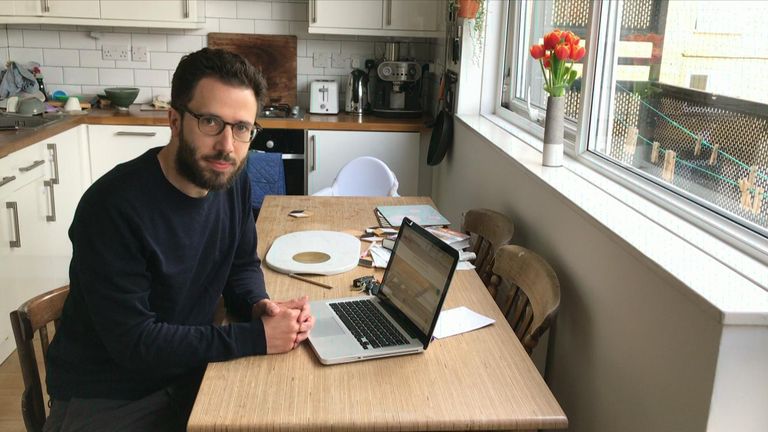 |
| Sky's Rowland Manthorpe has taken an antibody test |
At the start of March, I had a tight chest and a sore throat.
Nothing to worry about, in the normal run of things - but, boy, did I worry. Was this COVID-19? Was I spreading it? Should I self-isolate?
After the symptoms disappeared, my worry turned to hope. Had I contracted the best kind of coronavirus, the extremely mild kind? Had I won the lottery and acquired immunity at no cost?
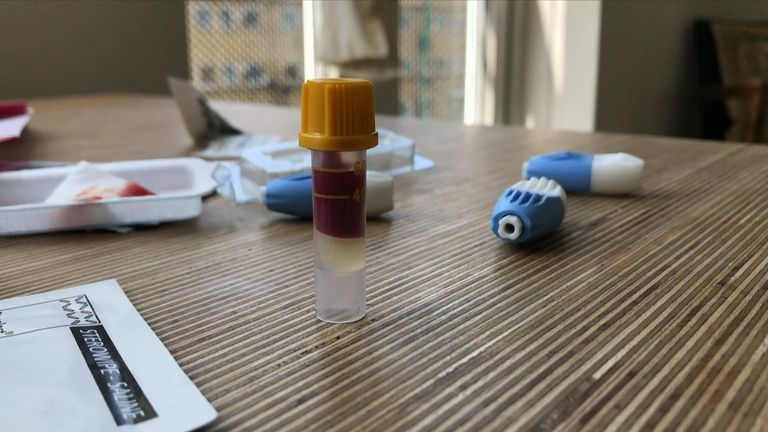
The test is more reliable when done in a laboratory
Since the start of the outbreak, I've spoken to dozens of people who have had similar thoughts, sometimes in the most unlikely circumstances.
My mum is pretty sure she caught it from my sister's partner in late December, at a time when the first cases were emerging in China.
A taxi driver told me he thought he'd had it in July last year.
"Are you sure?" I said.
"Absolutely," he replied.
Until recently, these speculations were impossible to check. An infection will leave antibodies that can be detected by a test, but getting an accurate version of those tests has not been easy.
In March, the New York Times reported that the government paid £16m for two million antibody tests from China, only to find out they didn't work.
But those tests were meant to be done at home, making them "as simple as a pregnancy test", as the prime minister put it in March.
Tests done in a lab are much more reliable.
Public Health England has approved an antibody test made by the pharmaceutical company Roche, which it says can reliably pick up whether people have contracted the virus.
Private laboratories are offering similar tests.
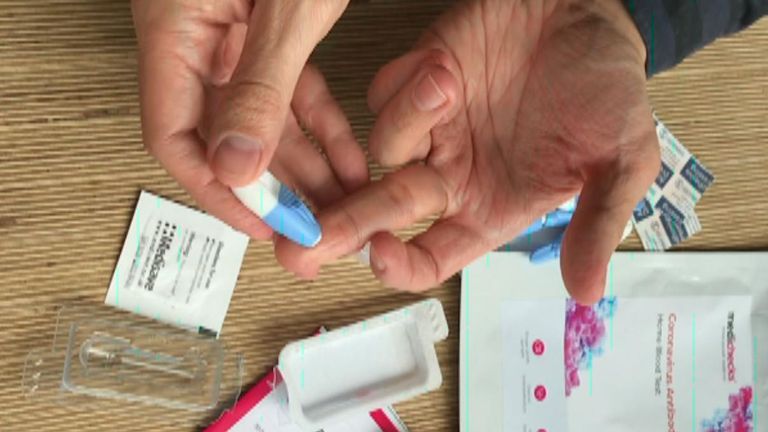
Although these aren't approved, they promise high levels of accuracy.
Medichecks, a healthcare testing company in Nottingham, offers lab-based antibody tests at a cost of £90, which it says score very highly on the key measures of accuracy, specificity and sensitivity.
That means they only pick up people who have genuinely had COVID-19, as opposed to another illness, and can detect even mild symptoms.
"If the test is taken 17 days after the onset of symptoms, the latest research I've seen from the University of Washington suggests that it's 100% accurate," says Dr Sam Rodgers, medical director of Medichecks.
However, he stresses that "this is a field that's changing incredibly quickly".
With this guarantee in mind, I decided to see what it was like.
The process was straightforward, if a little awkward. I pricked my fingers with lancets provided by the company, then filled a small vial with my blood.
I put my sample in a bag and sent it off to the lab.
Four days later, my results arrived. Feeling nervous, I opened the link.
"Your test did not find antibodies to the SARS-CoV-2 coronavirus in your blood sample," I read.
"It is therefore highly unlikely that you have been infected with coronavirus in the past."
I felt gutted. I'd been dreaming of a lottery win. Instead, I had nothing.
But I shouldn't have been - because even a very accurate antibody test can't actually tell us very much at all.
"We simply don't know yet whether the antibodies that we can detect are protective," says Professor Eleanor Riley, from the immunology and infectious disease department at the University of Edinburgh.
"An antibody test tells me that those symptoms I had a few weeks ago were due to coronavirus. It doesn't tell me that I'm immune to reinfection."
Antibody tests can help public health experts track the spread of the infection, but on an individual level, Professor Riley says, they provide little useful information.
"Individual tests at the moment are not a useful public health tool," she says.
"They are a curiosity, I think, for people who can afford to pay £90 or £100 for a test and think they might have had the infection."
I put this to Dr Rodgers of Medichecks. He agreed the tests would not be appropriate to use in clinical practice, and that they couldn't tell anyone whether or not they were immune - something his company makes clear.
"We are very, very careful to make clear that it is not a measure of immunity," he said. "It is simply a sign that someone has had infection."
Despite that, he told me, demand was very high.
"Most people just want to know if they've had the infection.
"People like to remove uncertainty from their lives. If they are feeling uncertainty about whether or not they've had the infection, this test will tell them."
Once I'd got over my disappointment, I found that I agreed.
At a time when there is so much uncertainty around, a little bit of clarity can be just the lift we need.
https://news.sky.com/story/coronavirus-i-got-an-antibody-test-but-did-it-really-tell-me-anything-11988189
